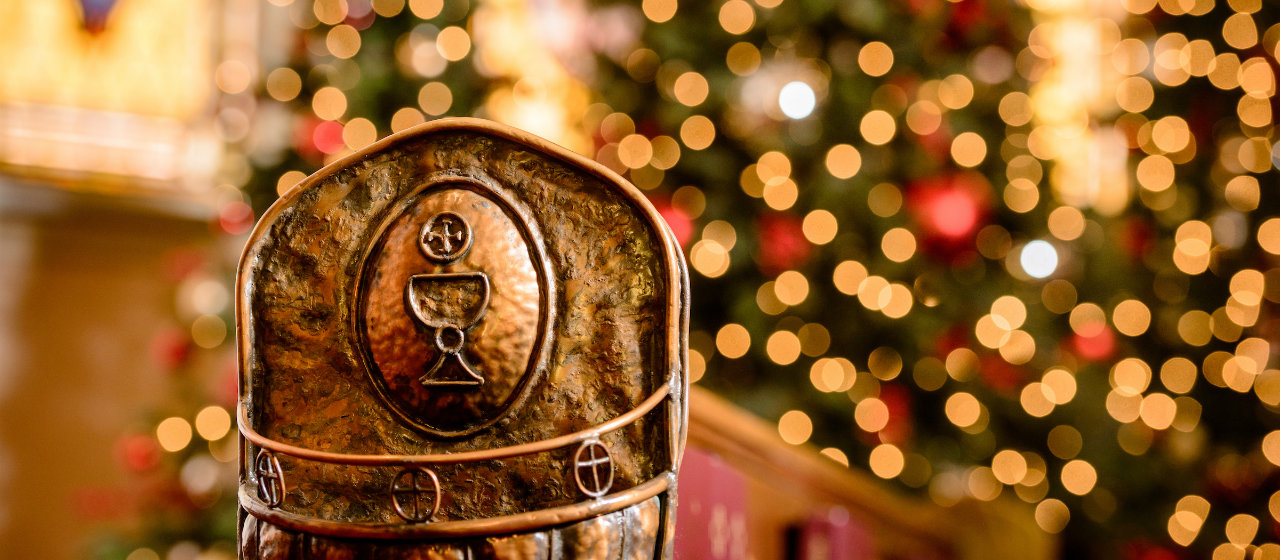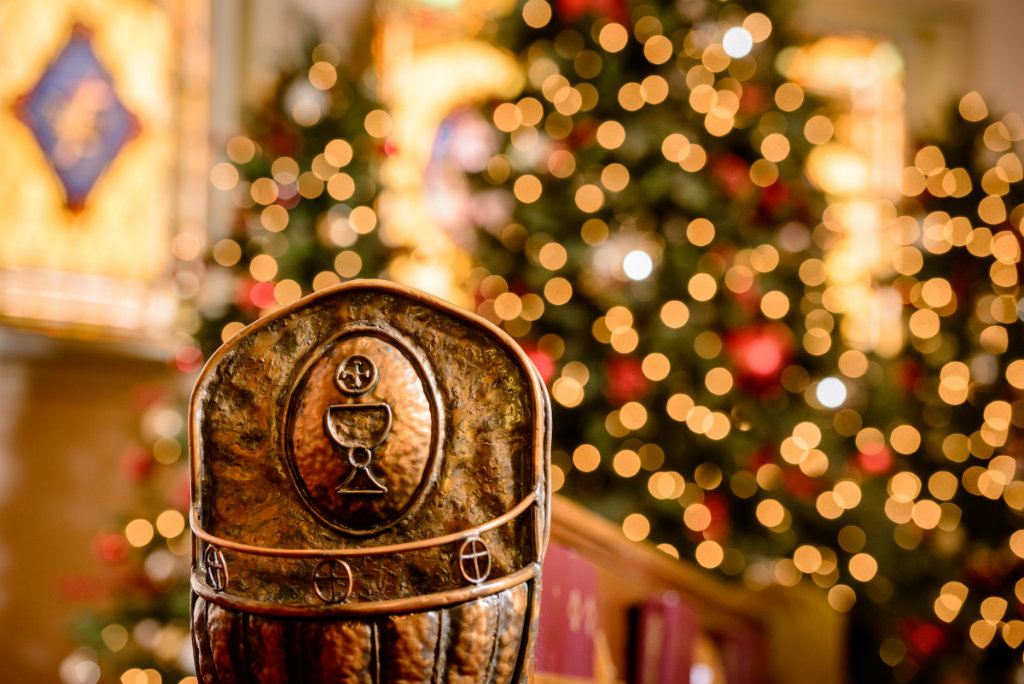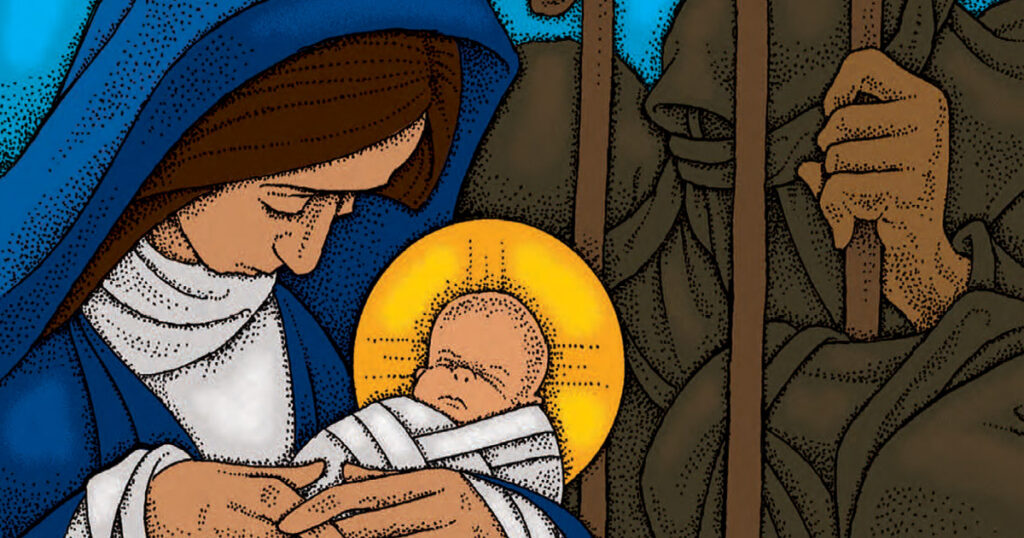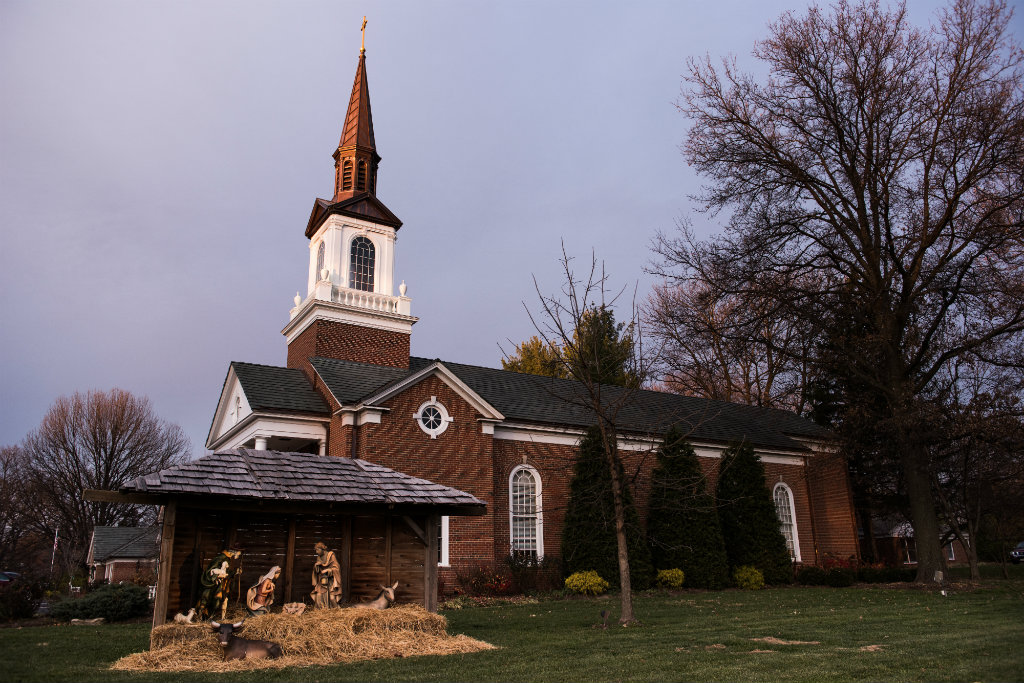
by Jocelyn Benson
The lights are dimmed, the candles are lit, and not a creature is stirring, except perhaps for a few sweet, squirmy toddlers. The sermon is ready, the choir is poised, and the organ welcomes all as the prelude begins. Whether you’re sitting in the pews, singing in the choir, playing in the brass group or bell choir or even standing in the pulpit, the sights and sounds of Christmas Eve and Christmas Day services easily flood our minds as we think back over years and decades of participation on these festive occasions, our memories and our present realities mingling powerfully together.
Perhaps these experiences help explain why, as Christmas approaches, or even long before Christmas approaches, we hear exhortations to “Keep Christ in Christmas.” Perhaps you have seen the billboards, yard signs, or newspaper ads. Yet have you ever stopped to ask yourselves just what this might mean or imply? Have you ever pondered that, if Christ is not in Christmas, it is actually not technically even Christ-mas?
The New Oxford American Dictionary defines Christmas as “the annual Christian festival celebrating Christ’s birth.” The etymology, which is always the most fun part of dictionary entries, tells us that Christmas comes from the Old English Crīstes mæsse and then encourages the curious to look up the words “Christ” and “Mass.” Since we are the curious sort, we will follow this etymology trail. Christ, of course, is the title given to Jesus, and it means “anointed” or “Messiah” depending on whether you are coming at it from Greek or Hebrew. Mass is “the Christian Eucharist or Holy Communion.” While many Lutherans do not typically refer to the Mass, this word is not unknown to us. Historically, in fact, this is a very Lutheran word.
What does it mean for us, then, to keep both “Christ” and “Mass” in Christmas?
Think back on the silent nights of Christmas Eve and the never-ending gladness of Christmas Day. How often is Holy Communion celebrated (or rather, not celebrated) on these festive occasions? As Lutherans, we understand as the Bible teaches, that Jesus is present for us in, with, and under the bread and wine in His Holy Supper. In partaking of Jesus’ body and blood, we experience heaven on earth. Talk about peace on earth and goodwill toward men! Jesus was there for you in the manger, and Jesus is there for you in His Supper. The carnal reality of the incarnation, which we celebrate most deliberately at Christmas, is made manifest in our mouths. Jesus’ birth was not the pinnacle of His time on earth. God became man to take our sin to the cross and make full atonement. Receiving the Lord’s Supper on Christmas is a potent reminder that Christ’s birth and his death are inextricably joined.
Our lectionaries typically guide us to Luke 2 on Christmas Eve and John 1 on Christmas Day. On Christmas Eve, as we ponder the little town of Bethlehem, which means “House of Bread,” it only makes sense to partake of the Living Bread from Heaven that was laid in a manger. How fitting, also, that upon receiving Christ’s body and blood, we rejoice as did Simeon as he received Jesus: “Lord, now you are letting your servant depart in peace, according to your word; for my eyes have seen your salvation that you have prepared in the presence of all peoples, a light for revelation to the Gentiles, and for glory to your people Israel” (Luke 2:29-32 ESV).
When we return to church on Christmas Day, we hear from John 1 that the Word, Jesus, became flesh and dwelt, or tabernacled, among us. When the time had fully come, God took on flesh and dwelt with us. In these days, that same flesh dwells with us in, with, and under the bread and wine. How beautifully the Christmas Eve and Christmas Day Gospel readings encourage our participation in the Mass of Christ on these festive occasions!
Let us keep Christmas, dear Christians, in all its fullness. Let us keep Christ in Christmas by keeping the Mass in Christmas. Go to church. Receive the Gifts Christ freely gives. Rejoice, one and all! Christ, your Savior, is here for you, in flesh and blood.
Jocelyn Benson is a member of Saint Paul Evangelical Lutheran Church in Chatfield, Minnesota. She serves as Head Teacher of Wittenberg Academy.






You might want to check your Book of Concord (which every LCMS congregation has in its Constitution’s article on doctrine): http://bookofconcord.org/augsburgconfession.php#article24
and
http://bocl.org?AP+XXIV
Merry Christmass!
Luther rejected the Roman Catholic doctrine of the mass while he also continued to refer to the Lord’s Supper as the mass in some of his writing. He distinguishes between the two. This article could have been clearer on that point.
Why bring up Mass? Are you trying to convert Lutherans to the Pagan Roman Catholic belief system. Many martyrs have been slayed for rejecting Roman Catholicism know it seems many Lutherans want to return to paganism. Is this what Luther fought against? It seems us old Lutherans will be forced out of our church. No wonder why attendance is declining!
Yes, please read the Book of Concord. Every Confessional Lutheran needs to and too many don’t, thus they remain naive as to what the church does and does not in fact truly teach. Again, please familiarize yourself with the Confessions.
In reply to the OP, I found your article inspiring and will bookmark it. Thanks for sharing.